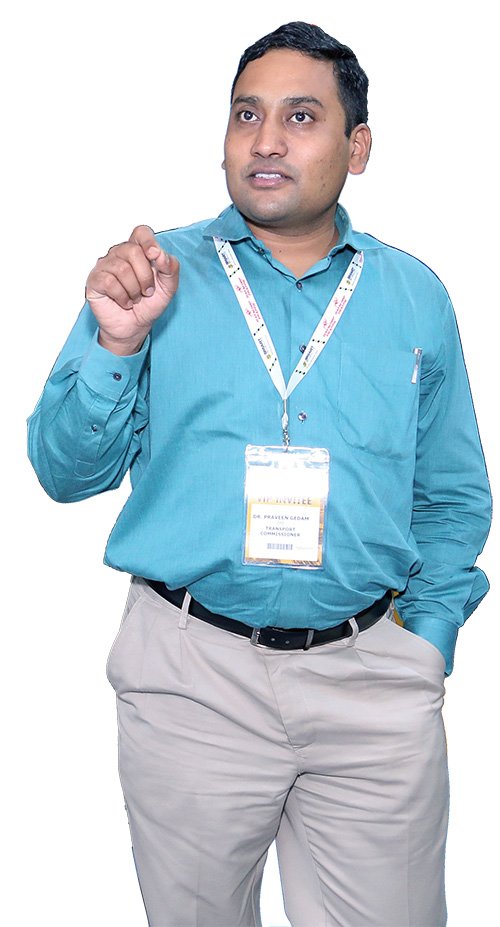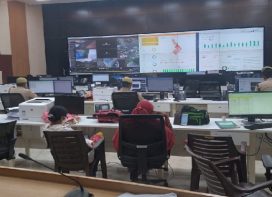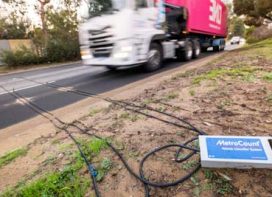Dr. Praveen Gedam, Transport Commissioner, Government of Maharashtra believes that computerization with seamless integration of various departments is the key to successful enforcement. He is also of the view that automated testing will become compulsory in a few years. At present, he is busy working out a process that makes traffic studies a part of school curriculum
What were you looking for when you visited the Expo and were you able to find some useful solutions?
Traffic is a big sector which needs substantial improvement. We are losing too many precious lives every year. There are certain issues where technology can come in and have a direct positive impact like the issue of road safety. A lot of good solutions were there on display and I am very happy to see them.
What specific technologies did you find interesting that you can put to use as the transport commissioner?
Many of them were very interesting. I can broadly classify them into two parts – one which is related with road design & road engineering and the other that is related to the vehicles. Road design and engineering includes advance technology for things like crash barriers and the laying of thermoplastic paint and signage. These technologies were very good. More importantly, for the vehicular part, there were quite a few interesting technologies on display like those on detection of various traffic violations, on maintaining discipline on the roads, on intelligent traffic management which helps manage the traffic flow in a given grid and then the simulators for certain driver related issues. So, it was a display of comprehensive solutions under-one-roof which was very good as otherwise, these are very high end companies which are difficult to get at one place. So, it gave a good opportunity to see everything under one roof and interact with these companies.
You spoke about crash barriers. Can you throw some light on the technologies used in the vehicle testing facility you have started in Nashik?
Nashik has the first of its kind automated testing centre in India. Indian rules and laws prescribe certain standards of testing for each vehicle before it is allowed to be driven on the road and in most of the places, everything is done manually. But in Nashik, the manual interface is totally removed. So, for example, whether you have a brake test or an exhaust test or beam of light test or test for pollution under control certificate, everything is done in a mechanized and computerized mode. This helps in two ways. While on the one hand the speed of work increases and objectivity gets introduced in the process, on the other hand, things get streamlined completely doing away with any scope for allegation on the government system or of unfair practices in carrying out the tests. So, the way to go ahead is to have this kind of testing centres all over India and I am very happy to share that the proposed amendment in the Motor Vehicle Act says that after a given point of time, maybe after a few years, manual testing will be completely done away with.
One interesting thing which we are planning along with the department of education is how we can introduce some topics of traffic discipline to children in schools. We had done the pilot in one district. So, we are in talks with the education department on whether we can include this as a part of the curriculum but without exams – just to instill a basic civic sense in the future citizens. That is one big project that we are looking forward to.
Apart from this mention about mechanized testing, what are your expectations from the Motor Vehicle Act for the transport department?
Motor Vehicles Act (MVA) is almost a 30-years-old Act and the rapid strides in technology have outpaced the legislation. Therefore, many changes were required in it. The proposed amendment talks about the modern techniques I just mentioned, automated testing station among many other things and whatever rules are framed within that framework, they will be more dynamic compared to the earlier version. Many aspects are changing with the changing times.
 TrafficInfraTech Magazine Linking People Places & Progress
TrafficInfraTech Magazine Linking People Places & Progress



